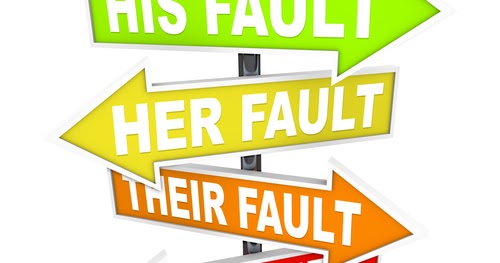|
Jaeger Counseling Blog
A Marriage & Pre-marital Counseling Individual & Family Therapy Resource |
|
Blame is a common reaction when something goes wrong or when we feel hurt or disappointed. It is a way for us to assign responsibility and find someone to hold accountable for the negative outcome. However, the concept of blame goes beyond just pointing fingers. It is a commentary on the unresolved hidden issues within the blamer themselves.
When we blame others, we often fail to recognize that our blame is a reflection of our own unresolved emotions and insecurities. Blaming someone else allows us to avoid taking responsibility for our own actions or facing our own shortcomings. It becomes a defense mechanism that shields us from confronting our own flaws and vulnerabilities. Blame also serves as a distraction from the deeper issues that lie beneath the surface. Instead of addressing the root cause of the problem, we focus on finding someone to blame. This prevents us from truly understanding the situation and finding meaningful solutions. Blame becomes a way to avoid the discomfort of self-reflection and growth. Furthermore, blame can be a projection of our own fears and insecurities onto others. We may project our own feelings of guilt, shame, or inadequacy onto someone else, making them the scapegoat for our own internal struggles. By blaming others, we create a false sense of superiority and righteousness, temporarily alleviating our own feelings of inadequacy. Instead of pointing fingers, we should focus on self-reflection and personal growth. By addressing our own emotions and insecurities, we can develop a deeper understanding of ourselves and others. This allows us to approach conflicts and challenges with empathy, compassion, and a willingness to find constructive solutions. "Before you point your finger at someone else, remember that there are always three fingers pointing back at you." - Unknown
0 Comments
Your comment will be posted after it is approved.
Leave a Reply. |
Norman Jaeger
|

 RSS Feed
RSS Feed